Explore our research
At GRIDD, we strive for excellence through supporting our research teams to work collaboratively to advance the discovery of new drugs, vaccines and diagnostics. We innovate through cross-disciplinary rigour and global collaboration.
Research themes
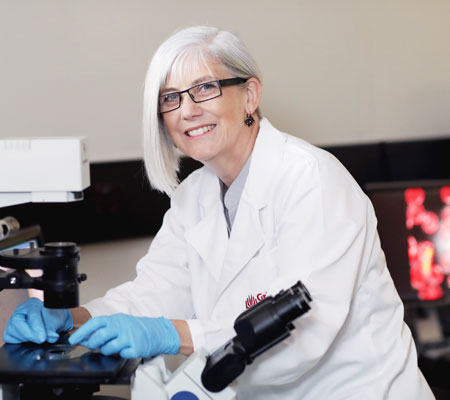
Cancers
An estimated 130,470 new cases of cancer were diagnosed in Australia in 2016, with that number set to rise to 150,000 by 2020. GRIDD research teams are working to discover compounds that are active against a range of cancers, including breast, prostate, pancreatic and brain tumours.
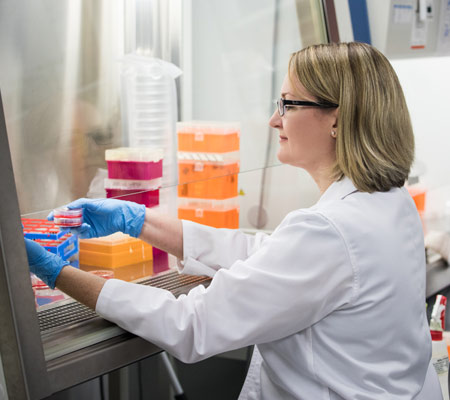
Infectious diseases
Infectious diseases kill more than one million people annually. GRIDD Professors Kathy Andrews, Vicky Avery and Ronald Quinn are seeking new drugs to treat diseases like malaria and TB, while Associate Professor Tina Skinner-Adams is exploring antiparasitic drug discovery and drug target identification, with a goal to improve the lives of those at risk of parasite infection.
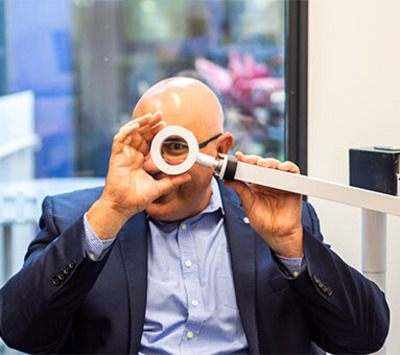
Neurological disorders
About 70,000 Australians are affected by this progressive disease of the nervous system. Professor George Mellick’s research explores the genetics of Parkinsonism and the interactions between genetic and environmental factors that contribute to onset and development of the disease.
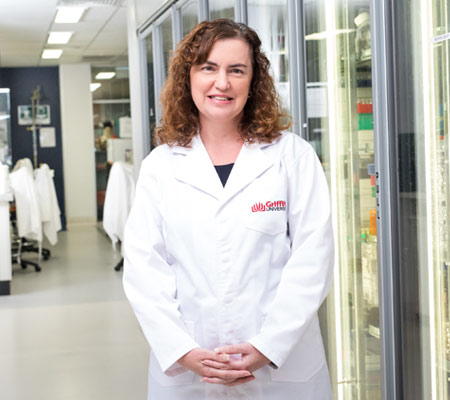
Drug resistance
Professor Sally-Ann Poulsen has discovered a new way to reverse multidrug resistance in cancer, while Professor Jenny Martin is exploring how to disarm bacteria so they cannot cause disease.
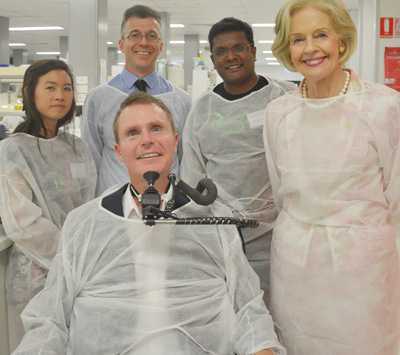
Spinal cord injury repair
Up to half a million people globally suffer from spinal cord injury. GRIDD’s Associate Professor James St John in the Clem Jones Centre for Neurobiology and Stem Cell Research offers hope of new therapies. The 2017 Australian of the Year, Professor Emeritus Alan Mackay-Sim pioneered this research.
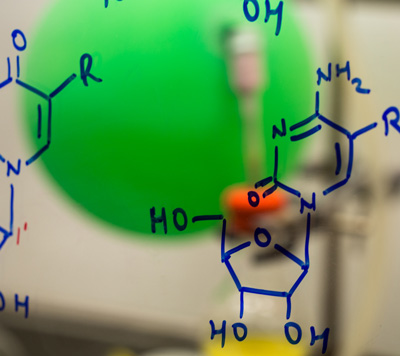
Our researchers
See the team who make up GRIDD and find out more about our individual research strengths.
Spotlight on Discovery Biology
The Discovery Biology laboratory and its Principal Investigator and Head, Professor Vicky Avery are outstanding contributors to GRIDD that attract significant research funding. Prof Avery is also Head, Griffith University Drug Discovery Programme for the CRC for Cancer Therapeutics (CTx) (2007-2020) and Deputy Dean (Research), Griffith Sciences.
Since 2007, the Avery lab has developed innovative high throughput, high content imaging assays to address the world’s neglected diseases, working in close collaboration with Medicines for Malaria Venture (MMV); Drugs for Neglected Diseases initiative (DNDi); Bill & Melinda Gates Foundation (BMGF) and the Global Health Innovative Technology (GHIT) Fund. Her lab has contributed to numerous drug discovery platforms resulting in new lead molecules and has played an integral role within the CRC for Cancer Therapeutics since its inception in 2007, providing HTS and HCI capabilities to support projects from hit identification through to lead optimisation.
The Avery team were awarded MMV Project of the Year (2007) for their innovative use of technology to identify new anti-malarials, and again in 2013 for their contribution to the clinical candidate, MMV390048.
In July 2015, Professor Avery and Ms Sandra Duffy from Discovery Biology were contributors to a breakthrough identifying and characterising a potent agent that thwarts drug resistance in the parasite that causes malaria. In a paper published in the journal Science Translational Medicine, an international research team reported the effectiveness of DSM265, a long-acting inhibitor for malaria which kills Plasmodium falciparum in the blood and liver.
This saw DSM265 declared a potential drug combination partner for either single-dose malaria treatment or once weekly doses for ongoing disease prevention. DSM265 has advantages over current treatment options that are dosed daily or are inactive against the parasite liver stage.
These findings follow the announcement in June 2015 of another discovery, a novel antimalarial compound known as DDD107498. Identified through collaboration between the University of Dundee’s Drug Discovery Unit and Medicines for Malaria Venture – and again featuring Professor Avery’s research team — DDD107498 has the potential to treat malaria patients in a single dose, prevent the spread of the disease from infected people, and protect a person from developing the disease in the first place. Details have been published in the journal Nature.
Give to Griffith
Donations help drive our world-class research. Discover how you can help make a difference.